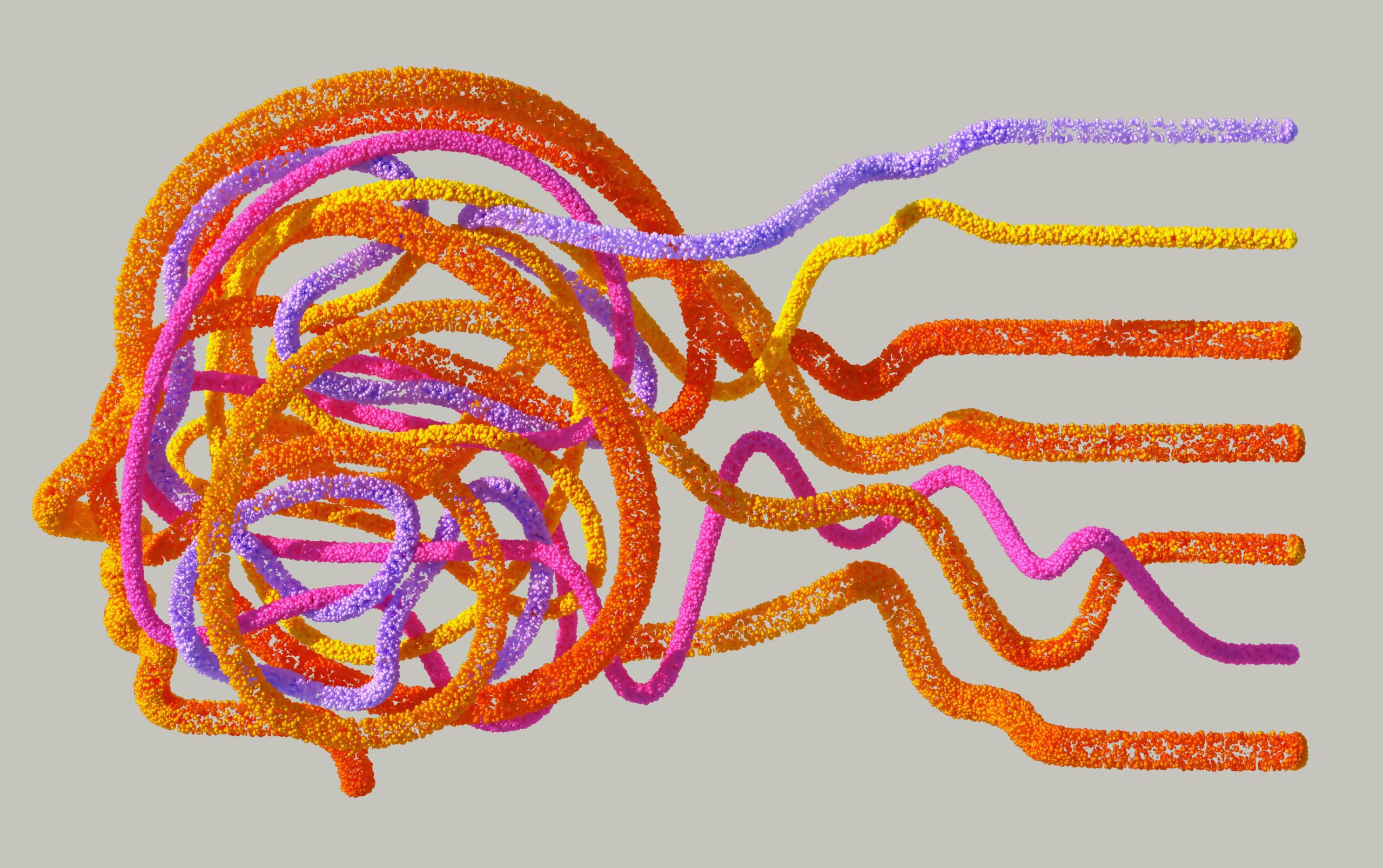Your brain is your most valuable asset, and like any high-performance machine, it requires proper training to function at its peak. In today’s fast-paced world, memory lapses and cognitive fog can hold you back from reaching your full potential.
The good news is that cutting-edge cognitive training systems are revolutionizing how we approach brain health and memory enhancement. These scientifically-backed methods aren’t just theoretical concepts—they’re practical tools that thousands of people are using daily to sharpen their minds, boost recall abilities, and maintain mental clarity well into their golden years.
Whether you’re a student preparing for exams, a professional managing complex projects, or someone simply wanting to keep your mind sharp, understanding and implementing these advanced cognitive training techniques can transform your mental performance. Let’s explore how you can unlock your brain’s true potential through modern neuroscience-based approaches.
🧠 The Science Behind Cognitive Enhancement
Neuroplasticity, the brain’s remarkable ability to reorganize itself by forming new neural connections, lies at the heart of cognitive training. This discovery has fundamentally changed our understanding of brain capabilities, proving that mental performance isn’t fixed but can be continuously improved through targeted exercises.
Research from leading neuroscience institutions demonstrates that consistent cognitive training can increase gray matter density, strengthen synaptic connections, and enhance the efficiency of neural pathways. These physical changes in brain structure directly translate to improved memory, faster processing speeds, and better problem-solving abilities.
The prefrontal cortex, responsible for executive functions and working memory, shows particularly strong responsiveness to structured training. Studies using functional MRI scans reveal increased activation patterns in trained individuals, indicating more efficient brain resource utilization. This scientific foundation validates why systematic cognitive training delivers measurable results.
Core Components of Modern Cognitive Training Systems
Effective cognitive training programs incorporate multiple dimensions of mental exercise. Unlike outdated one-size-fits-all approaches, contemporary systems recognize that comprehensive brain enhancement requires addressing various cognitive domains simultaneously.
Working Memory Development 💪
Working memory serves as your brain’s temporary storage system, holding and manipulating information during complex cognitive tasks. Strengthening this capacity directly impacts your ability to follow conversations, perform mental calculations, and multitask effectively.
Advanced training systems use adaptive difficulty algorithms that challenge your working memory just beyond your current comfort zone. This progressive overload principle, borrowed from physical fitness training, ensures continuous growth without overwhelming frustration. Exercises typically involve pattern recognition, sequence memorization, and information manipulation tasks.
Attention and Focus Enhancement
In our distraction-filled digital environment, maintaining sustained attention has become increasingly challenging. Cognitive training programs specifically target attention control through exercises that require filtering irrelevant information while maintaining focus on relevant stimuli.
These training modules often incorporate dual-task paradigms where you must simultaneously track multiple information streams, gradually improving your ability to allocate mental resources efficiently. The skills developed transfer directly to real-world situations requiring concentration amid distractions.
Processing Speed Optimization ⚡
Mental processing speed determines how quickly you can perceive, analyze, and respond to information. Age-related cognitive decline often manifests first as slowed processing, making this a critical area for preventive training.
Speed-focused exercises present time-constrained challenges that push your brain to make rapid yet accurate decisions. Regular practice rewires neural pathways for quicker signal transmission, resulting in snappier thinking and faster reaction times in daily activities.
Evidence-Based Memory Techniques Integrated into Training Programs
The most sophisticated cognitive training systems don’t just provide random brain games—they incorporate proven memory techniques backed by decades of psychological research.
The Method of Loci: Your Mental Palace
Also known as the memory palace technique, this ancient method leverages your brain’s exceptional spatial memory capabilities. By associating information with specific locations in a familiar environment, you create powerful memory hooks that make recall effortless.
Modern training applications guide you through building and using mental palaces, starting with simple room-based systems and progressing to elaborate architectural structures. This technique proves particularly effective for memorizing speeches, studying for exams, or remembering lists and sequences.
Spaced Repetition Systems 📅
Cognitive science has identified optimal intervals for reviewing information to maximize long-term retention while minimizing study time. Spaced repetition algorithms calculate precisely when you should review each piece of information based on your previous performance.
This approach combats the forgetting curve, the natural tendency to lose memory traces over time. By strategically timing review sessions, you can transfer information from short-term to long-term memory with remarkable efficiency, making it invaluable for language learning, professional certification preparation, or any knowledge-intensive field.
Dual Coding Theory Application
Your brain processes verbal and visual information through separate channels, and engaging both simultaneously creates stronger memory traces. Training programs implementing dual coding present information through multiple sensory modalities, dramatically improving encoding and retrieval.
Practical exercises combine text with images, sounds with written descriptions, and abstract concepts with concrete visualizations. This multi-sensory approach mirrors how the brain naturally processes memorable real-world experiences.
Digital Platforms Revolutionizing Brain Training
Technology has democratized access to sophisticated cognitive training previously available only in specialized research settings or expensive clinical programs. Today’s applications combine neuroscientific expertise with engaging user experiences to deliver effective training at scale.
Leading platforms offer personalized training programs that adapt to your performance in real-time, ensuring optimal challenge levels. These systems track your progress across multiple cognitive domains, providing detailed analytics that help you understand your strengths and identify areas needing additional focus.
Many applications gamify the training experience, incorporating achievement systems, progress tracking, and social features that maintain motivation over extended periods. This engagement factor proves crucial, as consistency matters more than occasional intensive sessions when building cognitive capacity.
🎯 Creating Your Personalized Cognitive Training Routine
Understanding cognitive training principles is only valuable when translated into consistent practice. Building an effective routine requires strategic planning and realistic goal-setting.
Establishing Training Frequency and Duration
Research suggests that shorter, frequent sessions outperform marathon training blocks. Most experts recommend 15-30 minute sessions, 4-5 times weekly, as the sweet spot for sustainable improvement. This frequency allows adequate practice while preventing mental fatigue that diminishes returns.
Morning sessions often prove most effective when cognitive resources are freshest, though the best time ultimately depends on your personal energy patterns. Consistency in timing helps establish training as an automatic habit rather than a willpower-dependent task.
Balancing Challenge and Achievability
Effective training operates in the zone of proximal development—challenging enough to stimulate growth but not so difficult that it causes frustration and abandonment. Quality training systems automatically calibrate difficulty, but when designing your own practice, aim for approximately 70-80% success rates.
This balance ensures you’re stretching your capabilities while maintaining the positive reinforcement necessary for long-term adherence. Periodic difficulty increases prevent plateaus and maintain engagement.
Incorporating Physical Exercise 🏃♀️
The mind-body connection runs deeper than most realize. Aerobic exercise increases blood flow to the brain, promotes neurogenesis in the hippocampus, and enhances the effectiveness of cognitive training. Research shows that combining physical and mental exercise produces synergistic effects exceeding either approach alone.
Even moderate activity like brisk walking before training sessions can prime your brain for optimal learning. Consider integrating your cognitive training routine with your physical fitness schedule for maximum benefit.
Nutrition and Lifestyle Factors Supporting Cognitive Performance
Cognitive training doesn’t occur in isolation—your brain’s performance depends heavily on the biological environment you create through lifestyle choices.
Brain-Boosting Nutritional Strategies
Certain nutrients directly support cognitive function and memory formation. Omega-3 fatty acids, particularly DHA, comprise a significant portion of brain cell membranes and facilitate neural communication. B vitamins support neurotransmitter synthesis, while antioxidants protect against oxidative stress that damages neural tissue.
Hydration significantly impacts cognitive performance, with even mild dehydration impairing concentration and memory. Maintaining steady blood sugar through balanced meals prevents the energy crashes that diminish mental clarity.
Sleep: The Ultimate Cognitive Enhancer 😴
Sleep represents when your brain consolidates memories, clears metabolic waste, and strengthens neural connections formed during waking hours. Inadequate sleep fundamentally undermines cognitive training efforts, as memory consolidation simply cannot occur without sufficient quality rest.
Prioritize 7-9 hours of sleep nightly, maintaining consistent sleep schedules even on weekends. The relationship between sleep and cognitive performance is so strong that a single night of quality sleep can be more beneficial than hours of training while sleep-deprived.
Stress Management Techniques
Chronic stress floods your brain with cortisol, which impairs hippocampal function and interferes with memory formation. Effective cognitive training programs often incorporate stress-reduction components recognizing this critical connection.
Mindfulness meditation, progressive relaxation, and controlled breathing exercises all demonstrate measurable benefits for cognitive performance. These practices reduce the mental noise that interferes with focus and learning while promoting the calm-alert state optimal for memory formation.
Measuring Progress and Maintaining Motivation 📊
Visible progress serves as powerful motivation for continuing your cognitive training journey. Modern training systems provide detailed metrics, but understanding what to track and how to interpret results maximizes their value.
Key Performance Indicators
Rather than obsessing over daily fluctuations, focus on weekly and monthly trends across different cognitive domains. Track metrics like average response times, accuracy rates, and complexity levels achieved. Most people see noticeable improvements within 4-6 weeks of consistent practice, with continued gains extending over months and years.
Real-world transfer represents the ultimate success metric—notice improvements in daily activities like remembering names, following complex instructions, or managing multiple tasks simultaneously. These practical benefits often appear before standardized test improvements become apparent.
Overcoming Plateaus
Progress rarely follows a straight upward trajectory. Plateaus are normal and often precede breakthrough moments as your brain consolidates previous gains. When progress stalls, consider introducing variety by exploring different exercise types, adjusting difficulty levels, or taking a brief recovery period.
Sometimes plateaus signal that certain cognitive domains need additional focus while others have advanced ahead. Comprehensive assessment tools help identify these imbalances, allowing targeted intervention.
Advanced Strategies for Peak Cognitive Performance 🚀
Once you’ve established a solid cognitive training foundation, advanced techniques can push your performance to exceptional levels.
Interleaved Practice
Rather than practicing one skill repeatedly before moving to the next (blocked practice), interleaved practice mixes different exercise types within sessions. This approach initially feels less efficient but produces superior long-term retention and skill transfer by forcing your brain to actively discriminate between different problem types.
Desirable Difficulties
Introducing strategic challenges like slight delays before retrieval attempts, generating answers before seeing them, or explaining concepts in your own words creates “desirable difficulties” that enhance learning. These techniques slow immediate performance but dramatically improve long-term retention and understanding.
Social Cognitive Engagement
Cognitive training doesn’t require solitary practice. Engaging in stimulating conversations, teaching others what you’ve learned, or participating in strategy games with friends provides excellent cognitive exercise while fulfilling social needs. The emotional engagement of social interaction enhances memory formation and makes training more enjoyable.
The Long-Term Journey: Building Cognitive Reserve
Perhaps the most compelling reason for cognitive training extends beyond immediate performance gains. Regular mental exercise builds cognitive reserve—a buffer of enhanced brain capacity that protects against age-related decline and neurological diseases.
Studies tracking individuals over decades reveal that those who consistently engage in cognitive training maintain sharper minds well into advanced age. This protective effect appears to delay the onset of dementia symptoms by years, even when underlying pathology exists.
Think of cognitive training as an investment in your future self. The neural connections you strengthen today and the mental habits you establish now compound over time, determining the quality of your cognitive function decades hence.

🌟 Transforming Potential into Reality
The convergence of neuroscience, technology, and behavioral psychology has created unprecedented opportunities for cognitive enhancement. These aren’t miraculous shortcuts or empty promises—they’re evidence-based approaches that deliver real improvements when applied consistently.
Your brain possesses remarkable plasticity and potential waiting to be unlocked through proper training. The systems and strategies outlined here provide a comprehensive roadmap for enhancing memory, sharpening focus, and optimizing overall cognitive performance.
Starting your cognitive training journey requires nothing more than commitment to consistent practice and openness to the process. Whether you choose sophisticated digital platforms or traditional memory techniques, the key lies in regular engagement and progressive challenge.
The investment you make in your cognitive health today will pay dividends across every area of your life—from professional success and academic achievement to richer relationships and maintained independence in later years. Your enhanced brainpower awaits; the only question is when you’ll begin unlocking it.
Toni Santos is a cognitive storyteller and cultural researcher dedicated to exploring how memory, ritual, and neural imagination shape human experience. Through the lens of neuroscience and symbolic history, Toni investigates how thought patterns, ancestral practices, and sensory knowledge reveal the mind’s creative evolution. Fascinated by the parallels between ancient rituals and modern neural science, Toni’s work bridges data and myth, exploring how the human brain encodes meaning, emotion, and transformation. His approach connects cognitive research with philosophy, anthropology, and narrative art. Combining neuroaesthetics, ethical reflection, and cultural storytelling, he studies how creativity and cognition intertwine — and how science and spirituality often meet within the same human impulse to understand and transcend. His work is a tribute to: The intricate relationship between consciousness and culture The dialogue between ancient wisdom and neural science The enduring pursuit of meaning within the human mind Whether you are drawn to neuroscience, philosophy, or the poetic architecture of thought, Toni invites you to explore the landscapes of the mind — where knowledge, memory, and imagination converge.




